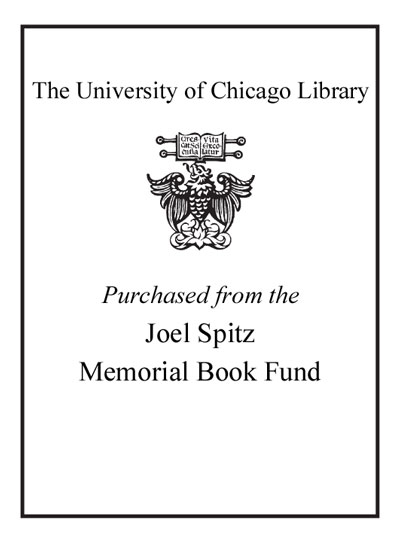|
|
|
|
| LEADER |
00000cam a2200000Ii 4500 |
| 001 |
12750966 |
| 008 |
220610s2021 cl aeh b 000 0 spa d |
| 005 |
20221012155149.0 |
| 020 |
|
|
|a 9789569571909
|
| 020 |
|
|
|a 956957190X
|
| 035 |
|
|
|a (OCoLC)on1332988716
|
| 035 |
|
|
|a (OCoLC)1332988716
|
| 040 |
|
|
|a H7K
|b eng
|e rda
|c H7K
|d BP1
|d JPG
|d OCLCF
|d CLU
|
| 043 |
|
|
|a s-cl---
|
| 050 |
|
4 |
|a NA2543.S6
|b S26 2021
|
| 245 |
0 |
0 |
|a Santiago 1977-1990 :
|b arquitectura, ciudad y política /
|c editor, Daniel Talesnik.
|
| 250 |
|
|
|a Primera edición.
|
| 264 |
|
1 |
|a Santiago :
|b Ediciones ARQ :
|b Escuela de Arquitectura, Pontificia Universidad Católica de Chile,
|c 2021.
|
| 300 |
|
|
|a 179 pages :
|b illustrations, plans, facsimiles ;
|c 23 cm
|
| 336 |
|
|
|a text
|b txt
|2 rdacontent
|
| 337 |
|
|
|a unmediated
|b n
|2 rdamedia
|
| 338 |
|
|
|a volume
|b nc
|2 rdacarrier
|
| 504 |
|
|
|a Includes bibliographical references.
|
| 505 |
8 |
|
|a Introducción. Dividir para conquistar / Daniel Talesnik -- ESPACIO PÚBLICO Y CONSUMO -- Soporífero: el lento, gris y neón espacio público de la dictadura / Genaro Cuadros -- Artefactos neoliberales: construcción y especulación de la ciudad a través de la arquitectura para el consumo masivo, 1973-1990 / Liliana De Simone -- Reconstituir o público: Espacios de organización a escala local bajo dictadura / Daniel Opazo -- MEDIOS Y DISCURSOS DISCIPLINARES -- La arquitectura en dictadura: el discurso disciplinar / Macarena Cortés -- La contrapropuesta del CEDLA; Cambios en la cultura arquitectónica a fines de los setenta / Fernando Carvajal -- Neoliberalismo, autoritarismo y exhibicionismo. La Bienal de Arquitectura y el desencuentro entre política y profesión, 1977-1983 / Fernando Portal -- IDEOLOGÍA Y ARQUITECTURA -- Un material no tan angustiante / Alejandro Crispiani -- ¿Fue el posmodernismo la arquitectura del pinochetismo? Arquitecturas en el centro de Santiago en la década de 1980 / Daniel Talesnik -- Complejidad y contradicción en la dictadura: Arquitectura e historia en el Chile de Pinochet / Francisco Díaz -- POLÍTICAS HABITACIONALES -- Políticas de una ciudad desigual (1952-1977) / Francisco Quintana -- Santiago Non-Plan / Alejandra Celedón -- Un "sistema destinado a perdurar": el subsidio habitacional y las políticas de vivienda durante la dictadura pinochetista / Emanuel Gianotti, Javier Rojas -- Posfacio. Santiago sin socialismo: entre el desarrollismo reformista y el neoliberalismo / Gonzalo Cáceres -- Biografías.
|
| 520 |
|
|
|a The forty-four years that separate the publication of Lo nuevo, de nuevo and the first architecture biennial in Chile not only mark the period in which Chilean architecture has found itself, but also the period in which more energy has been spent on Be recognized. The neoliberal curtain on which this story has taken place allows us to better understand the imperative need that this biannual reinvention of the new in architecture has taken. Thus, with the Chilean architecture biennials as the object of research, this book not only reconstructs a little-known history (despite its proximity), but also reveals other less obvious aspects of it, allowing a broader and more in-depth reading. . At the end of the second decade of the 21st century the same decade in which the biennial apparatus reached both its massification and its global exhaustion, Lo Nuevo, again allows us to distance ourselves from the permanent novelty and observe the biennials of Chile as a historically situated phenomenon. Perhaps reading the history of these encounters will allow us to begin to think of different ways of meeting in the future. Therein lies the historical value and the essential condition of this book.
|
| 650 |
|
0 |
|a Architecture and society
|z Chile
|z Santiago
|x History.
|
| 650 |
|
0 |
|a Cities and towns
|x Growth
|x Political aspects
|z Chile
|z Santiago.
|
| 650 |
|
0 |
|a City planning
|x Political aspects
|z Chile
|z Santiago.
|
| 700 |
1 |
|
|a Talesnik, Daniel,
|e editor.
|
| 929 |
|
|
|a cat
|
| 999 |
f |
f |
|s 37ab1de9-120d-4634-8ab9-887ea84c350a
|i 256327cd-1714-4682-aad4-6126bcdf437e
|
| 928 |
|
|
|t Library of Congress classification
|a NA2543.S6 S26 2021
|l JRL
|c JRL-Gen
|i 12888051
|
| 927 |
|
|
|t Library of Congress classification
|a NA2543.S6 S26 2021
|l JRL
|c JRL-Gen
|e SPIT
|b 117754920
|i 10414949
|

